Furin Wind Chimes - Japanese Encyclopedia

Japanese wind chimes (furin) are used on hot summer days to induce the feeling of coolness through sound. In this article, we introduce the features of wind bells, as well as places where you can make or purchase your own.
Japanese Wind Chimes - The Sound of Summer

Furin or wind chimes are a symbol of summer in Japan. The chimes are hung outside or near the windows and people enjoy the soothing sounds they make when the wind blows.
Play the video to listen to the sound of wind chimes!
A wind chime consists of a bowl-shaped exterior, the zetsu (clapper) on the inside that produces the sound, and a strip of paper that is hung from the zetsu. With just these three parts, a furin emits the beautiful sound that is reminiscent of summer.
History of Japanese Wind Chimes
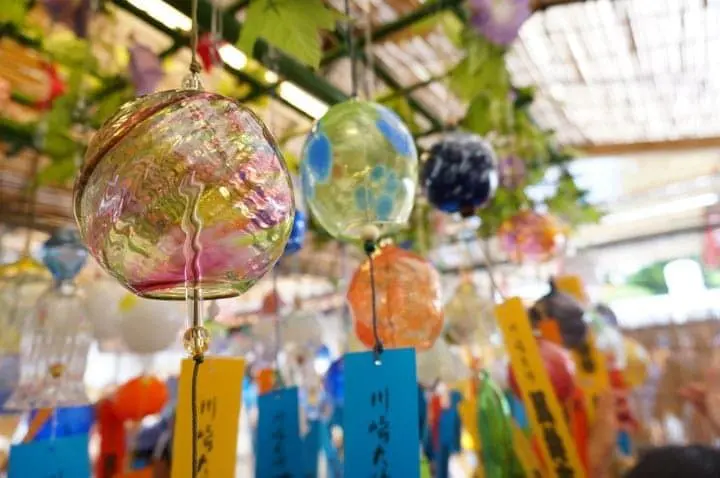
From ancient times, it was believed that when a strong wind blows, an epidemic will spread around the country. Therefore, in order to avoid epidemics and to ward off evil, a bronze wind chime in the shape of a bell called futaku was hung up.
When the futaku gets blown by a strong wind, it produces a sound that alerts people. These bell-like chimes were mainly hung in sacred places such as shrines and temples. They were inspiring a feeling of the divine.
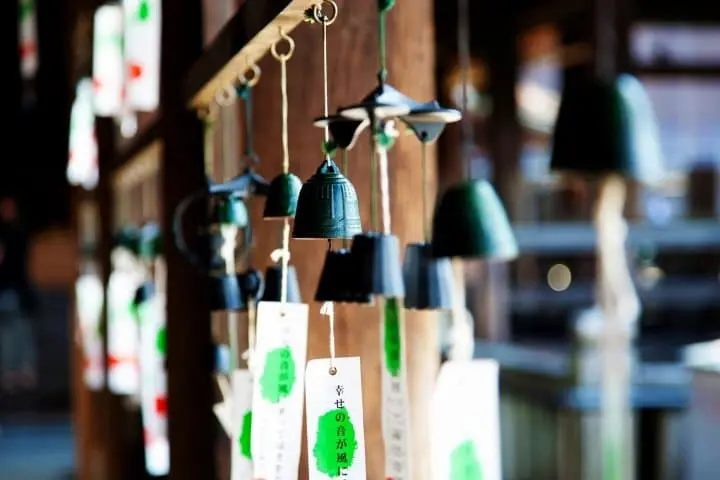
Furin chimes were born as simpler versions of the futaku. They used to be hung up during the summer when epidemics spread due to the high temperatures and humidity as a ward against these problems.
Chimes in the shape of bells were formerly made of bronze. However, in the eighteenth century, glassmaking techniques were introduced from Holland and changed the appearance of the furin. During the nineteenth century, glass products became popular and glass wind chimes became the main type of furin instead of the bronze ones.
Even though traditionally furin were used to ward away evil and epidemics, nowadays people simply enjoy their clear sound during the hot summer days. For some people, the relaxing sound of the furin and the sound of the Japanese cicadas make the summer heat more bearable.
The Meaning of the Paper Hanging from The Furin
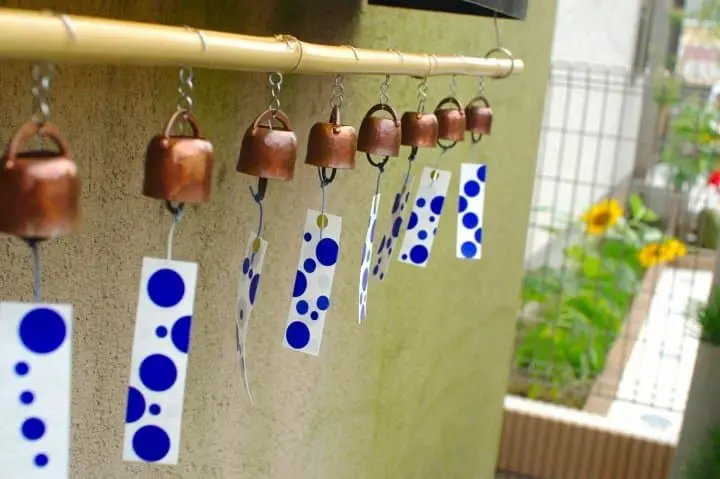
Wind chimes have a piece of paper hung from the center of the bowl-shaped bell. When the wind blows, the paper catches the wind and moves the clapper to produce the sound. Thanks to the paper, the furin emits the gentle sound that everyone likes to enjoy during the summer months.
Furthermore, the paper is used to enhance the feeling of a cool summer breeze. The paper allows us to visualize the wind. When the paper moves from a light breeze, you suddenly acknowledge the presence of the wind. This is the secret of feeling coolness even on the hot and humid days of the Japanese summer.
How Are Wind Chimes Made?
Traditional glass crafting techniques are used to make the basic shape of a glass wind chime. First, the heated glass is blown into the size of a large candy. Then, after collecting melted glass by spinning it, the glass is shaped into a bowl. The hole for the thread is made while blowing air into the bell. Lastly, a picture is painted onto the inside of the cooled glass to complete the wind chime.
In Iwate, traditional Nambu iron techniques are used to make the Nambu Furin. Despite the heavy appearance, the clean metallic sounds they create have their own charm.
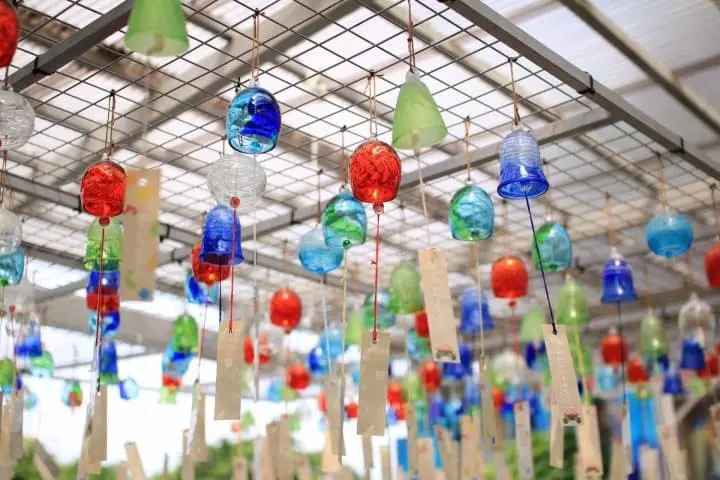
Ryukyu glass wind chimes
In Toyama, wind chimes are made using Takaoka Bronze. Okinawans use the famous Ryukyu glass to create their wind chimes. In various regions of Japan, local manufacturing techniques are developed and passed down. Making wind chimes is also popular as a summer school project. Students use plastic cups for the bell.
Some people use wind chimes simply to decorate their rooms. Their design adds a slight Japanese feeling to any room. Wind chimes have many purposes and can be used in various ways.
Purchasing Wind Chimes in Japan
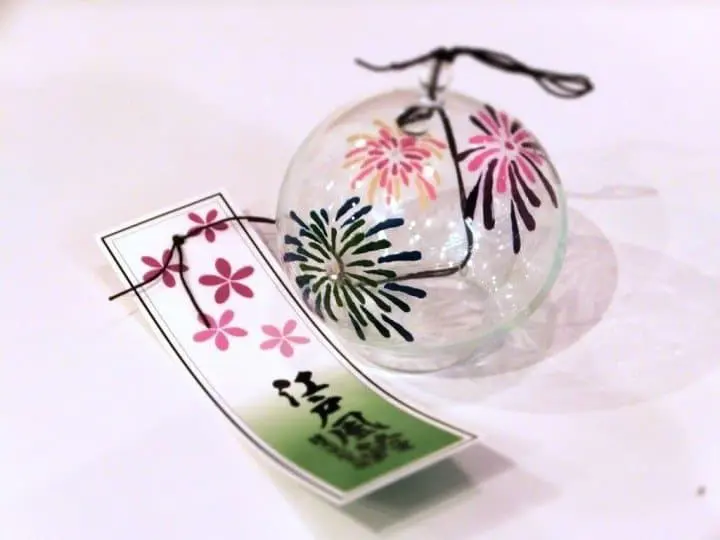
If you would like to buy your own wind chimes, we recommend the Fujiwara Furin Main Shop in Tokyo. This shop has been operating for over one hundred years. It is located a twelve-minute walk from Mizue Station on the Toei Shinjuku Line.
If they aren't very busy, you will be able to see how wind chimes are made. You can actually experience making one yourself! Please feel free to contact them if you are interested.
Nambu iron wind chimes can be purchased in the Mizusawa Ward of Oshu, Iwate. If you visit Mizusawa Station in the summer, you will find many Nambu furin on display in the waiting room in the station. Indulge in the clear sound of these wind chimes while seeking the perfect souvenir.
Furin wind chimes are easy to find in the summer. Wind bell shops from all over the nation are likely to have pop-up booths sell original furin.
Traditional shopping areas such as Asakusa in Tokyo have a variety of traditional and original wind chimes as well.
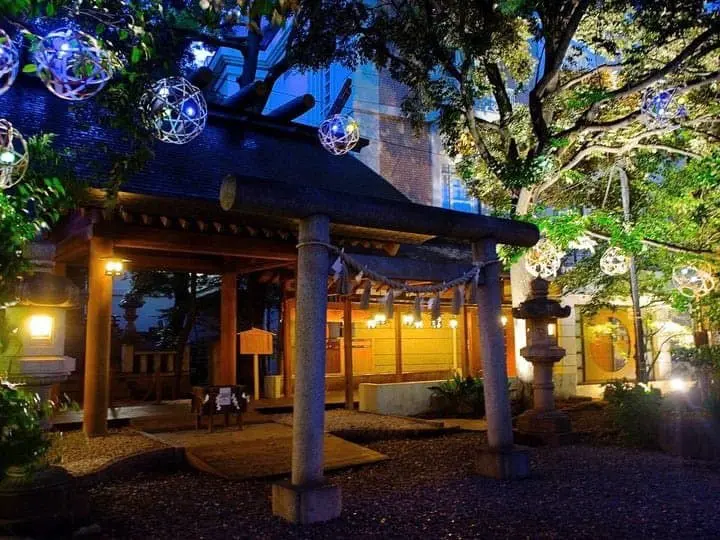
Kawagoe Hikawa Shrine, Kawasaki Daishi Temple, and other shrines and temples throughout the country hold wind chime festivals (furin matsuri) in the summer. If you are in Japan in July or August, do visit such a festival to fully enjoy the beautiful sound of wind chimes.
日本への訪日外国人の方が、もっと増えますように!






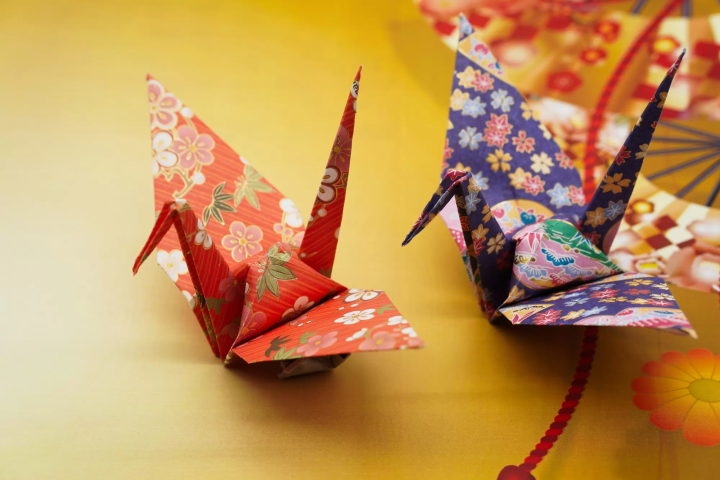




























![[During Your Kumano Trip] Nachisan Tourist Center](https://resources.matcha-jp.com/resize/720x2000/2025/11/05-249053.webp)
![[Kagoshima] Enjoy Minamisatsuma City to the Fullest! A Guide to the Scenic Beauty and Culture of Five Areas](https://resources.matcha-jp.com/resize/720x2000/2026/02/15-258755.webp)

![[Yufuin]Yufuin in 100 Minutes: Quick Access Guide](https://resources.matcha-jp.com/resize/720x2000/2026/02/15-258738.webp)
![[Shinjuku Nishiguchi HALC] About the d Point Campaign](https://resources.matcha-jp.com/resize/720x2000/2026/02/14-258714.webp)